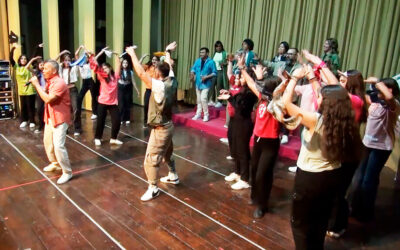October 23rd will mark the 60th anniversary of the 1956 uprising. This anniversary holds strong memories for the Focolare, especially for one of its main branches: the Volunteers. But are the ideals of the 1956 uprising linked to something that belongs to the past, to the story of Hungary? Or should the 60th celebrations be an opportunity to renew and to put into action those values for which thousands of people gave their lives for? Here is a glimpse into historical facts related through the personal testimonies of those who have kept up their Christian commitment to society and who are faithful to the most genuine values pursued in 1956, starting off from the evangelical choices that they made. Videos with subtitles (select language) https://www.youtube.com/watch?v=F-m85VMcI8g https://www.youtube.com/watch?v=bpxqy-fYHc8
Guard the beauty of creation
Guard the beauty of creation




0 Comments